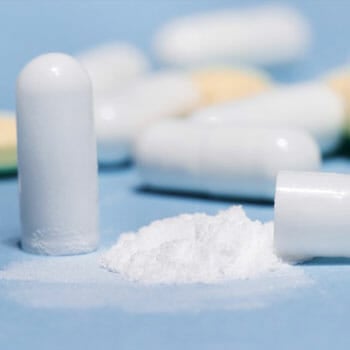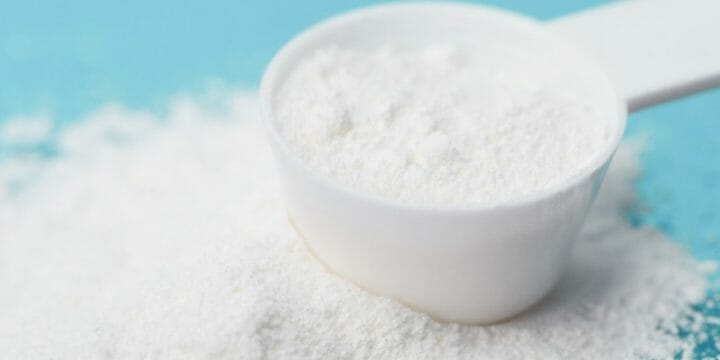A long-term patient sought my advice regarding a looming drug test at work since it raised concerns about his regular pre-workout regimen.
What precautions should be taken to ensure that pre-workout supplements align with health and regulatory guidelines, especially regarding their potential impact on drug tests?
I conducted thorough research, consulted scientific studies, collaborated with pharmacologists, and tested different supplements to establish a definite connection.
Not surprisingly, the answer is more complex than it appears.
Quick Summary
- Pre-workout supplements may affect drug tests if they contain substances banned by anti-doping agencies.
- The lack of FDA regulation in the supplement industry leads to the inclusion of undisclosed, sometimes banned, substances in pre-workout products.
- According to a study published in Sports Health, it's estimated that 6.4% to 8.8% of doping cases are caused by tainted dietary supplements.
- Personally, I believe it's crucial for consumers to research and verify the contents of their supplements to avoid the consequences of inadvertent doping.
Will Pre-Workouts Affect a Drug Test?

Yes, there are some pre-workouts that will affect a drug test, depending on the specific ingredients and the testing standards applied.
Craze, once a popular pre-workout supplement, was banned by the military after causing failed drug tests.
Several labs tested the pre-workout and found other ingredients apart from caffeine, creatine, and nitric oxide, which aren’t listed on the label.
This led to the decline of the supplement’s status, and it's being pulled from sale on many pre-workout sites.
I’ve encountered instances where athletes, despite their best intentions, faced career setbacks due to undisclosed substances in their pre-workouts.
While we often focus on the physical components and legal implications of pre-workout supplements in drug tests, it's crucial to also address the psychological toll it can take. Anxiety and stress are common companions of those awaiting test results.
The World Anti-Doping Agency (WADA) Guidelines

WADA oversees Olympic drug testing and publishes a list of banned substances. They have a list of all banned ingredients on pre-workout products and other supplements, which is always published and available to everyone.
If WADA tests an athlete and they have a banned substance in their system, they’ll get suspended. It sounds straightforward, but it’s a little more complex in reality.
The list isn’t easy to understand because it lists substances by their chemical composition, which isn’t easy for an average person to understand. There’s a chance that people test positive on the test.
Determining if pre-workouts affect drug tests is tricky since many legal supplements are used by athletes, which are not steroids or amphetamines.
From my firsthand encounters, I’ve unveiled unsettling practices where certain pre-workout brands enhance efficacy by incorporating banned ingredients clandestinely.
Cross-contamination in manufacturing can lead to banned substances in pre-workouts, risking a failed drug test.
Navigating the landscape of legal and workplace policies surrounding drug tests is as intricate as understanding the biochemical interactions of pre-workout supplements. Employees and employers alike must be well-versed in rights, obligations, and protections, a topic elaborated by the Substance Abuse and Mental Health Services Administration.
Post you may like: Does Creatine Show Up on a Drug Test
Why Does an Athlete Test Positive on Drug Tests?

To sum up, there appear to be three things that lead to an athlete testing positive on a drug test due to pre-workout products, including hidden banned substances, mislabeling, and intentional usage:
Manufacturers Adding Banned Substances Without Listing Them on the Label
Some people might use pre-workouts with traces of a banned substance that aren’t listed on the label, so no one except the manufacturers knows the banned substance is there.
Users Missing the Banned Substances on the Label
If you’re into most pre-workout supplements for fitness support, you might be ignorantly using pre-workouts with banned stimulants which are listed on the label. This happens because people believe that if something is sold over the counter, it’s safe to use.
In fact, if something is sold over the counter, it doesn’t mean it isn’t banned.
The significance of understanding the possible harms related to pre-workout supplements and carefully scrutinizing product labels cannot be overstated.
Athletes Consciously Using a Banned Stimulant, Such as Steroids or Drugs
We cannot discount that some might actually be using banned substances to support their workout goals. In these cases, an athlete will test positive on a drug test even if his pre-workout is void of any illegal ingredients.
The US Anti Doping Agency

The US Anti Doping Agency regulates pre-workout supplements in the US and provides a list of high-risk supplements. There are some obvious pre-workouts listed, but there’s also plenty that isn’t.
It comes down to this: pre-workout brands want to make money, and the best way to do that is to sell stimulants that will create good results, which will lead to buzz and posts on social networks, so everyone will want to buy them.
And, because the FDA doesn’t check the pre-workout, the companies can put whatever they want in it, and athletes are the ones who take the fall.
"The FDA doesn't regulate any supplements, so anything you buy from a health store, branch chain amino acids, protein, it's really not regulated. When you try to go through an ingredient list, it's hard to go through because you don't know what a lot of it is, so you can get yourself in trouble without even realizing it."
- Christina Horford, Personal Trainer
How To Be On the Safe Side?

There's no fail-proof method, but checking ingredients like DMAA against the US Anti Doping Agency's prohibited list can guide you [1].
Another good idea is to ask around. Check with other athletes, work colleagues, or gym-goers what pre-workout they are taking and if they have been tested.
Stay informed by reading up on ingredients like c4 and caffeine, and understand why they might be banned [2].
Ultimately, someone who is taking a popular pre-workout supplement is rolling the dice.
What’s more, if you play a sport professionally and test positive, it will have a severe impact on your life, as neither WADA nor the US Anti Doping Agency will accept the complaint.
FAQs
Is Pre-Workout A Steroid?
No, pre-workout is not a steroid. Hormone replacement therapies come with many serious side effects that range from acne to mood swings and liver toxicity that can lead to organ failure. When it comes to a typical pre-workout, the ingredients are classed as generally safe, and allergic reactions are very rare.
Can Supplements Cause a Failed Drug Test?
Yes, some supplements have the potential to cause a failed drug test. This can occur because certain dietary supplements may contain trace amounts of substances that are on the list of banned or prohibited substances in sports or employment drug testing.
References:
- https://www.fda.gov/food/dietary-supplement-ingredient-directory/dmaa-products-marketed-dietary-supplements
- https://www.ncaa.org/sport-science-institute/topics/
About The Author
You May Also Like






